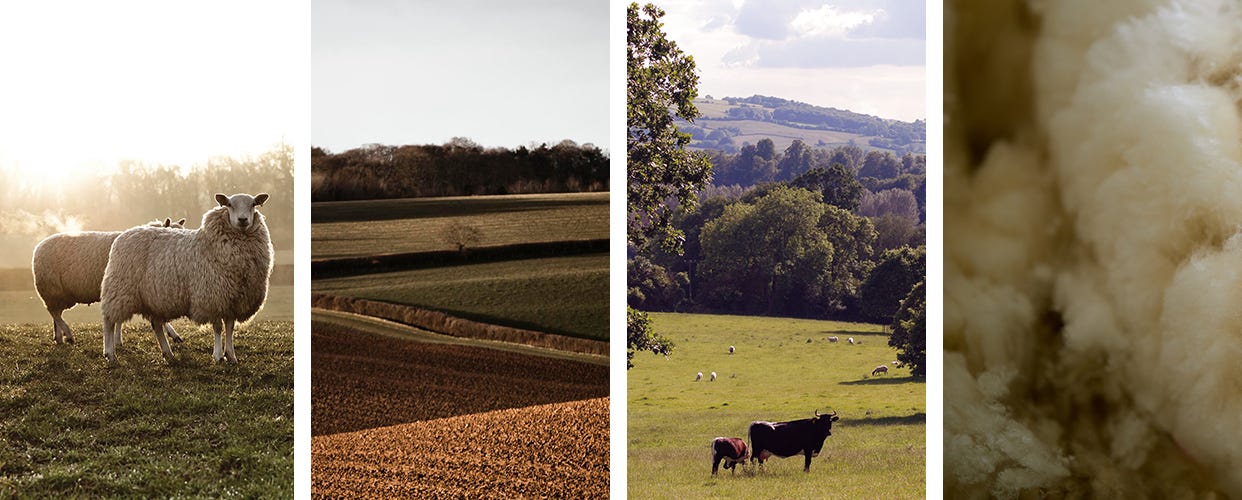
Notes from the Farm - February 2024
FROM RICHARD SMITH
Farm Managing Director
"Leap year was ne'er a good sheep year"
This centuries-old proverb blamed the 29th of February for challenging flocks, bad weather and poor crops. Superstitious farmers would avoid planting on this date for fear they would only be able to harvest once every four years. Countryside folklore went as far as to claim that broad beans and peas would grow the “wrong side of the pod” in a leap year.
Nowadays, logic has prevailed and these far-fetched claims have long since been debunked, with even Charles Darwin sharing his scepticism in his autobiography: “So that here a belief—if indeed a statement with no definite idea attached to it can be called a belief—had spread over almost the whole of England without any vestige of evidence.”
What remains true is the deep connection between leap years and agriculture. Farmers need to be able to keep track of the days, months and seasons, in order plant and harvest crops at the optimum time. The solar year – the time it takes for the Earth to orbit the sun – is approximately 365.2422 days long. Ignoring the small fraction leads to big problems; before long, the days and months would fall out of step with the seasons. Ancient civilisations such as the Egyptians and the Romans tried different methods to align their calendars to nature, some more successful than others. The modern, Western calendar system of adding an extra day every four years is not perfect (our average year length is 365.2425 days, half a minute longer than the solar year), but allows our winter, spring, summer and autumn months to fall as expected for the next few millennia without having to make any drastic changes – or worry about our sheep.


SHEARING MERINOS
We keep merino sheep for their fine, soft wool, which Bamford use in their seasonal ready-to-wear collections. We shear our merino sheep every eight months, which is how long a fleece takes to grow the length required to make merino wool (75mm). In the summer months, the sheep are grateful to be sheared, but sometimes the timing falls in the winter, as it did earlier this month. When this happens, we keep them indoors in the warmth of their deep straw beds until their fleece grows back enough to protect them from cold and wet weather, which takes about eight weeks.
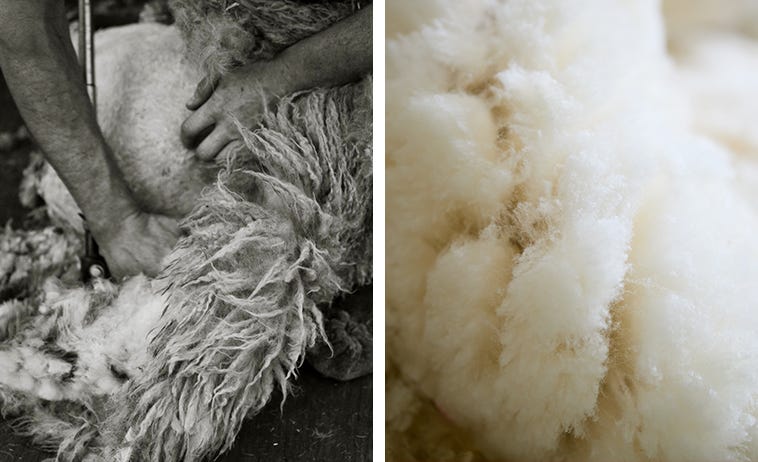

TOP MARKS FOR DAIRY COWS
Earlier this month our dairy herd of Pedigree British Friesians was inspected by the British Friesian Society, who look for stature, body, udder and leg structure as well as locomotion. Our ladies scored above the national average, with some of them being marked as excellent, the top score available.
SETTING EGGS
The beautiful, pale blue eggs you can find in our farmshops are laid by our flock of Cotswold Blue Legbar hens. Legbar cockerels run with the hens all year round, so all the eggs we collect will be fertile. This month we set more than two hundred eggs in our incubators, at staged intervals. The chicks that will lay our blue eggs in the summer months will be born 21 days later. They will lay their first eggs at 22-24 weeks old – the first ones tend to be smaller “practice” eggs, named pullets.
Not all chicks that hatch are hens; an equal proportion will be cockerels. We keep all the males, allowing them to mature into cockerels and run with the flocks. They bring a social order to the flocks and fertilise eggs for the next batch of chicks.
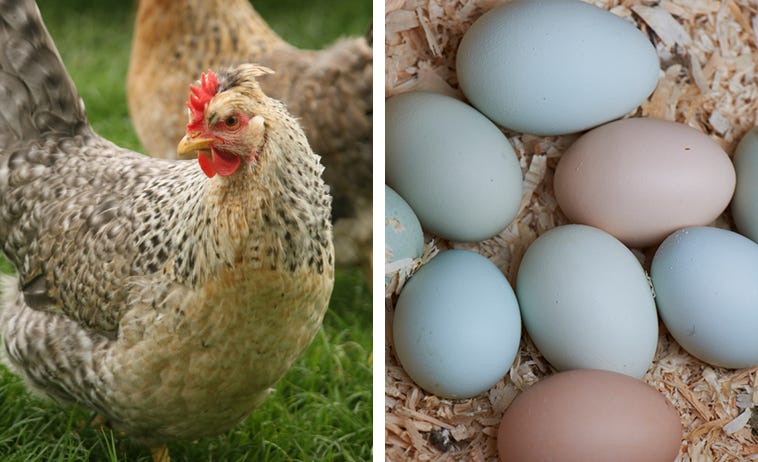

SPRING FLOWERS
Shades of white, creamy pinks and lilacs, pale blues and soft greens – the gentle palette of early spring guides our floristry team at this time of year. The garden room is filled with freshly cut ranunculus, anemone, astrantia, anthurium, narcissus, hyacinth and eucalyptus, ready to be arranged into beautiful bouquets for our farmshop or carefully wrapped and boxed up to send directly to customers’ doors.
Our florists make a limited number of fresh hand-tied arrangements each day so it is best to order early – Valentine’s Day earlier this month was busy, and we are expecting similar interest for Mothering Sunday in March.
Another idea, which makes a lovely alternative to sending a bouquet, is to book onto one of our floristry courses at our Cotswolds farm, so you can enjoy an afternoon immersed in the floral arts.
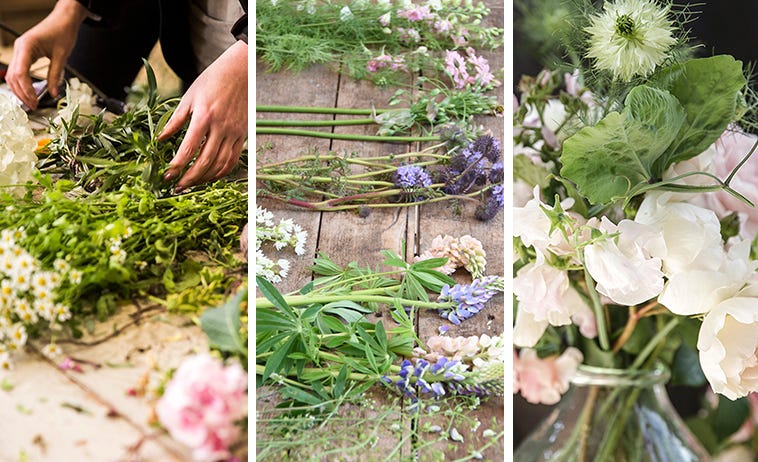

YES CHEF
We regularly update our café menus to celebrate the most delicious, freshest ingredients available throughout the year. The seasons are always a starting point for inspiration, and our chefs say that being able to draw on the knowledge and experience of our resident experts at Daylesford, including gardeners, farmers, cheese makers and bakers, is a dream come true.
Just yesterday, our menus were refreshed with new dishes that showcase the wonderful seasonal flavours of purple sprouting broccoli and leeks from our own organic Market Garden, blue cheese from our Creamery, and rhubarb and winter citrus from further afield. Look out for them next time you dine with us in London and the Cotswolds.
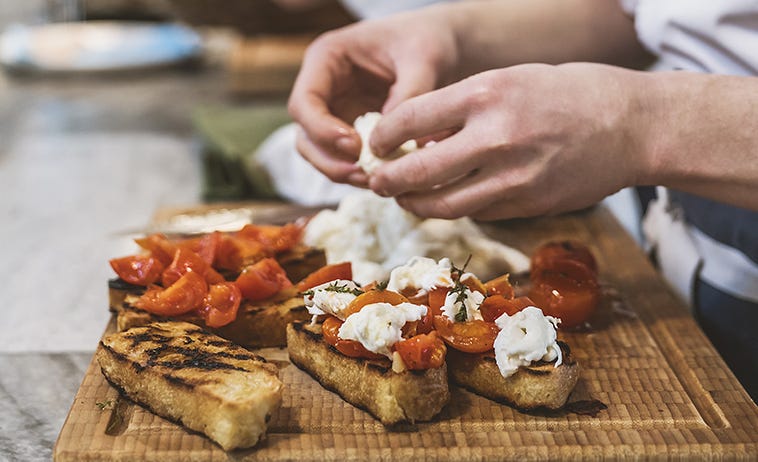

STAY WITH US
With spring on the horizon, many people are thinking ahead to Easter and summer holidays. Our Daylesford Stays properties (The Three Horseshoes, The Bell, The Wild Rabbit, The Fox and The Daylesford Cottages) have all been thoughtfully designed to offer the comfort of a home away from home, the perfect base to relax and enjoy the beautiful Cotswold countryside.
If you are looking for a getaway in the next few weeks, our Celebrate Spring Midweek Stay includes a With Love hamper and one-hour class in the Bamford Wellness Spa – bookable until the 28th of April.
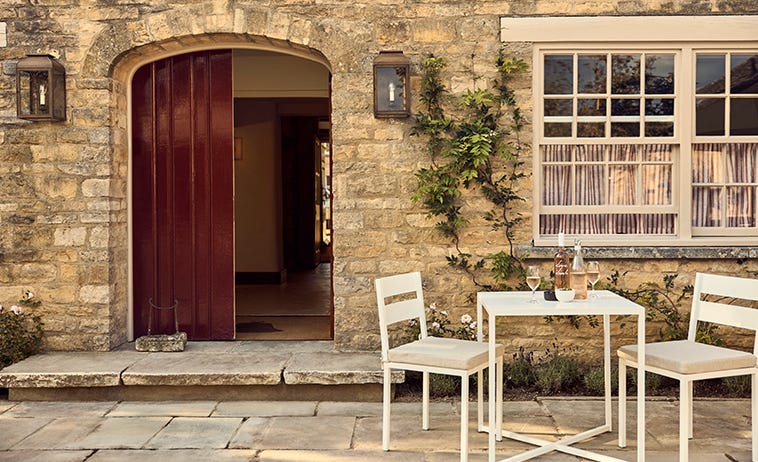

"Although the air is still brisk, the last few days of February always feel full of hope and optimism to me. Each day is a little lighter than the last and I love that every time I walk through my garden, new clusters of snowdrops have popped up - along with a vibrant carpet of cyclamen and iris.
In the market garden, it is now mild enough to begin planting seeds that mark the start of the farm’s new growing cycle. I spent a happy morning in the nursery with Jez, where we sowed hundreds of seeds for the various chilli varieties we grow, including Jalapeño, Basque and Padron peppers. These will be kept warm and covered on a heated bench until April. You can easily achieve a similar effect at home by growing seeds on a warm windowsill. We have lots of kitchen herbs in the farmshop at the moment - or for something a little more decorative, paperwhite narcissi are one of my favourite spring bulbs every year.
It has been wonderful to see new projects begin to flourish this month too, with the opening of Heritage House on the farm - a state-of-the-art events space where we will host special experiences and share the story of all that we do at Daylesford."


